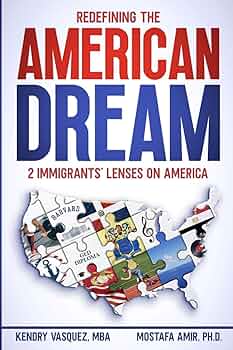
In those journeys, chance appears, but not as a strategy. Opportunity isn’t a row of blinking slots; it’s a calendar of early mornings and late nights, stitched together by community ties, bilingual advantage, and a stubborn belief that customers remember who solves real problems. The move from idea to invoice rarely feels cinematic — more like steady chapters, each one a little braver than the last.
Context That Sharpens the Edge
Many founders arrive already fluent in constraint. Growing up around currency swings, energy markets, or import bottlenecks teaches practical risk. That background becomes a lens in the U.S. market: spot waste, compress steps, make prices transparent. Cultural fluency opens doors in sectors where trust is everything — food supply chains, healthcare navigation, neighborhood retail, and the service layer behind heavy industry.
Capital is a hurdle, but not the whole story. Some ventures bootstrap with family lending circles; others find traction through community banks, faith-aligned investors, or accelerator cohorts that understand immigrant realities. The pitch shifts from “this could be big” to “this is already selling” — traction first, storytelling second.
Field-Tested Playbooks (That Keep Delivering)
- Service First, Tech Later — Start with a manual solution to learn the customer’s real pain, then automate the most tedious 20 percent.
- Trust Before Scale — Earn repeat business in one neighborhood or niche, codify what works, and only then widen the map.
- Regulatory Fluency — Treat compliance as a feature: document, certify, and make safety part of the brand.
- Cash-Flow Discipline — Price for margin from day one; growth that can pay rent survives winter.
- Community Signaling — Sponsor youth leagues, hire locally, and show up at festivals; reputation compounds faster than ad spend.
Success looks different across sectors. A Yemeni-American grocer builds a cold-chain mini-network that rescues produce margins. A Palestinian-led fintech streamlines remittances with clear fees and human support in Arabic and English. A Lebanese-born engineer leads a mobility startup that sells to midwestern municipalities, proving that smart transit tools don’t need Silicon Valley ZIP codes to win.
The Second Engine: Culture + Craft
What outsiders call “hustle,” insiders call practice. Negotiating with suppliers across time zones becomes muscle memory. Hospitality doubles as customer experience; a warm greeting is not a tactic, it’s infrastructure. Food businesses evolve into franchises; auto shops add software scheduling; logistics firms spin out analytics that other small operators can rent.
Mentorship also compounds. Founders who exit reinvest in cafés, maker spaces, and scholarship funds that quietly seed the next cohort. The result is an ecosystem where advice travels faster than capital — a powerful edge when official gateways move slowly.
Where Momentum Is Building
The landscape is wider than restaurants and retail — though both remain powerful engines of mobility. Healthcare navigation, supply-chain automation, and specialized construction services are seeing Arab-led companies turn operational excellence into durable moats. Media, fashion, and hospitality translate heritage into modern brands without flattening identity.
Next-Wave Opportunities With Real Pull
- Halal & Health Tech — Transparent sourcing, allergy-friendly kitchens, and digital certification that travels from farm to menu.
- Neighborhood Logistics — Micro-warehousing and route optimization for independent grocers and pharmacies.
- Energy-Smart Services — EV-ready installations, efficient HVAC, and training programs for trades in transition.
- Cross-Border Finance — Remittances with dignity, FX tools for small importers, and fraud-resistant onboarding.
- Cultural Consumer Brands — Modest fashion, fragrance houses, and homeware lines that treat story as a quality standard.
Metrics That Matter (And Why)
Headlines love valuations; customers love reliability. In these companies, the scoreboard runs on on-time deliveries, repeat orders, employee retention, and complaint resolution time. Those numbers, tracked weekly, keep teams honest. They also speak clearly to lenders who care less about pitch-deck poetry and more about debt coverage and seasonality curves.
Hiring tells its own story. Many firms become first-job onramps for new arrivals, then invest in upskilling — forklift certifications, bookkeeping basics, OSHA training. A business that upgrades people builds loyalty that cannot be undercut by a slightly cheaper competitor.
What The Broader Market Can Learn
This wave of founders demonstrates that inclusion is a profit strategy, not just a value statement. Serving multilingual households, observing faith-based needs in product design, and respecting extended family economics widen the addressable market. Brands that listen grow faster than brands that explain.
The American dream persists here because the rules are simple, even if the work is not: ship on time, keep promises, price fairly, and show up for the neighborhood. Do that long enough and a storefront becomes a small chain, a workshop becomes a supplier, a local app becomes a regional platform.
A Mosaic With Momentum
Arab entrepreneurs in the U.S. are building businesses that feel both deeply local and confidently global. The wins are practical, the growth steady, and the impact visible in paychecks, apprenticeships, and renovated Main Streets. Call it resilience, call it craft — either way, the result is the same: companies that make life work a little better, one solved problem at a time.